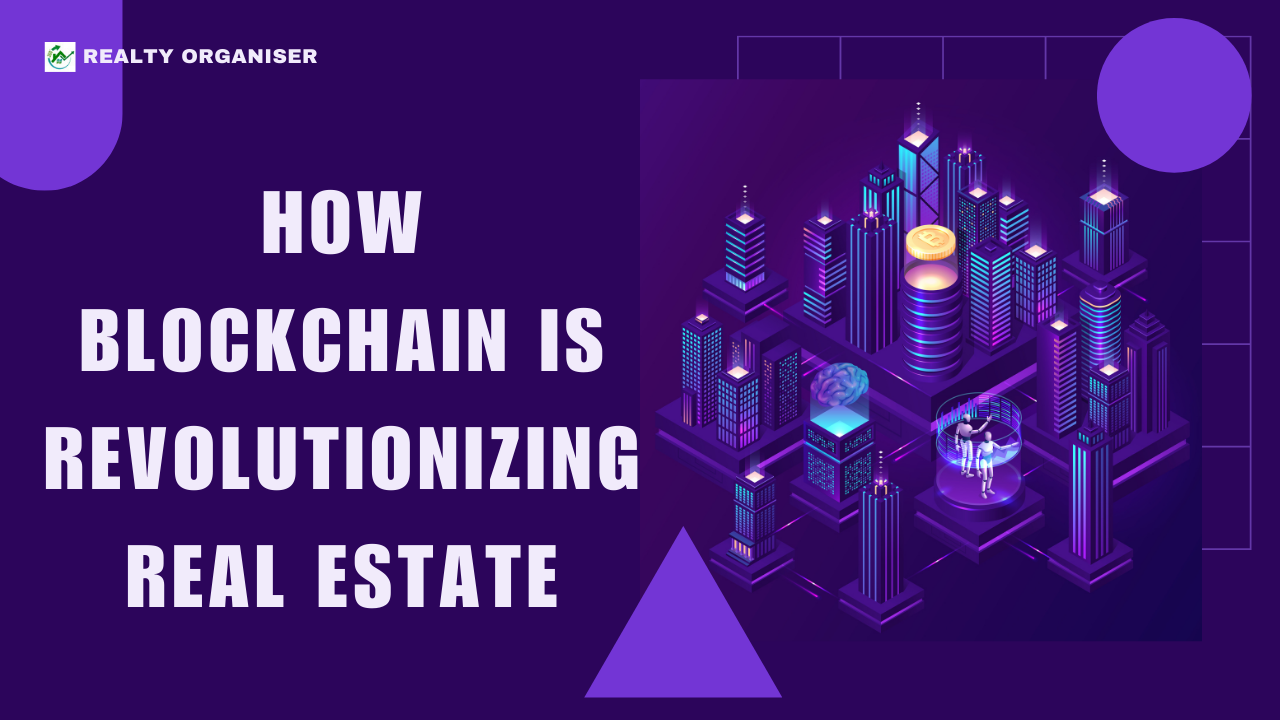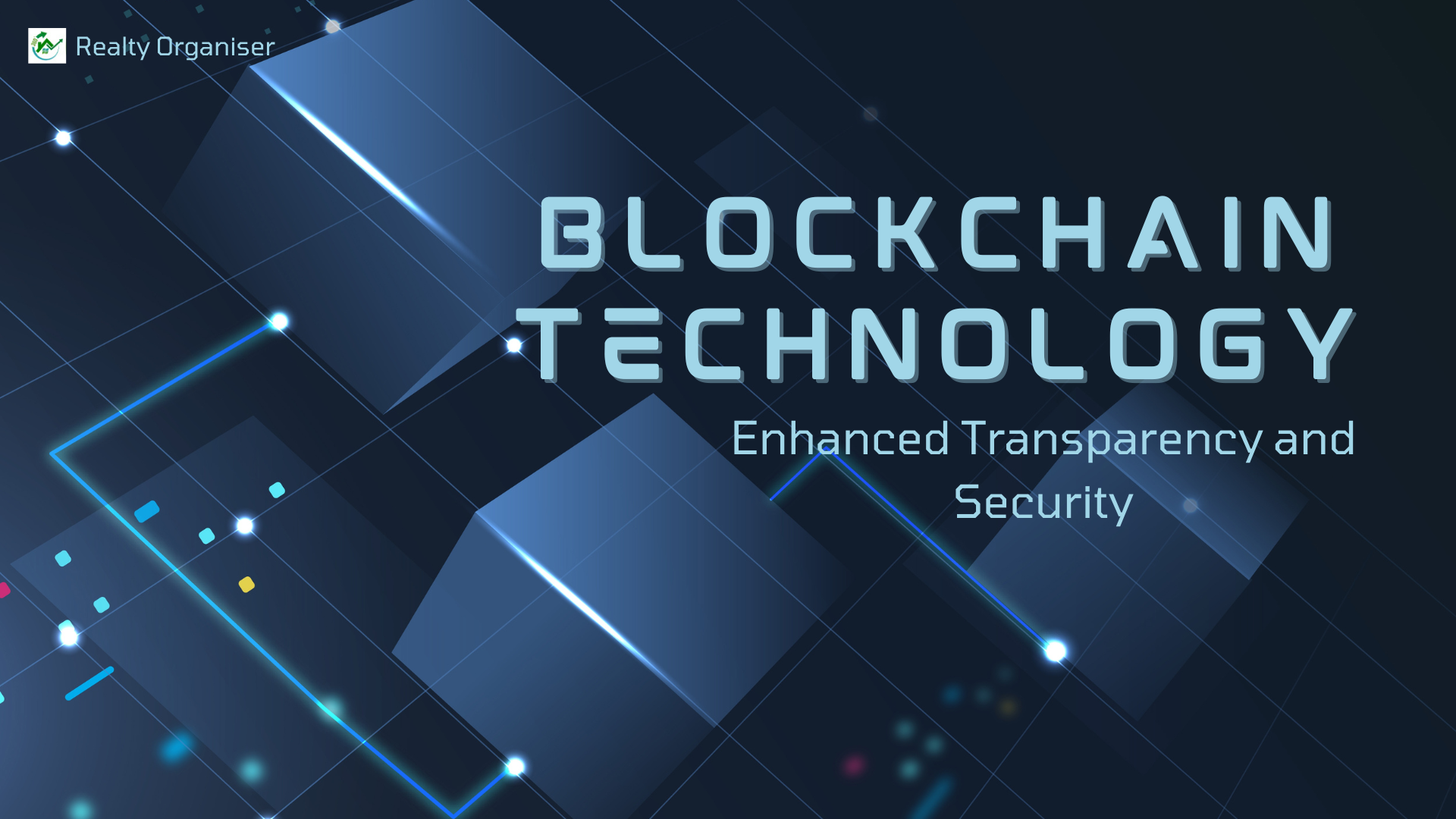
How Blockchain is Revolutionizing Real Estate?
Blockchain technology has become a buzzword across various industries, and its impact on real estate is nothing short of revolutionary. In this article, we'll explore the transformative power of blockchain in the real estate sector, from enhancing transparency to streamlining transactions. Join us on this journey through the blockchain landscape, where innovation meets property.
What is Blockchain?
Blockchain is a decentralized digital ledger technology that records transactions across multiple computers in a way that ensures the security, transparency, and immutability of data. Imagine a digital spreadsheet duplicated thousands of times across a network of computers. This network is designed to regularly update this spreadsheet, making it almost impossible to alter or tamper with the data it contains.
Introduction to Blockchain in Real Estate
Blockchain, the technology behind cryptocurrencies like Bitcoin, has emerged as a game-changer in various industries, and real estate is no exception. This decentralized and secure ledger system is revolutionizing the way property transactions occur, offering enhanced transparency, security, and efficiency.
Enhanced Transparency and Security

One of the primary advantages of blockchain in real estate is its ability to provide an unprecedented level of transparency and security. By utilizing a decentralized and tamper-resistant ledger, blockchain ensures that property transactions are conducted with the utmost integrity. This significantly reduces the risk of fraud and manipulation, instilling trust in the real estate process.
Smart Contracts: Redefining Real Estate Deals
Smart contracts, which are self-executing contracts with the terms directly put into code, are changing how real estate trades are performed. These contracts automate and streamline the transaction process, eliminating the need for intermediaries and reducing the likelihood of errors. This not only accelerates the speed of transactions but also reduces costs associated with traditional methods.
Tokenization of Real Estate Assets
Blockchain introduces the concept of tokenization, allowing real estate assets to be divided into digital tokens. This fractional ownership opens up new possibilities for investors, making real estate investments more accessible and liquid. Tokenization has the potential to democratize the real estate market, enabling a broader range of individuals to participate in property ownership.
Decentralized Property Records
Blockchain challenges the traditional centralized approach to property records by offering a decentralized alternative. This shift not only enhances the efficiency of record-keeping but also reduces the risk of data loss or manipulation. Property records stored on a blockchain are immutable and transparent, providing a reliable source of information for all stakeholders involved in a real estate transaction.
Overcoming Challenges and Concerns
While the benefits of blockchain in real estate are substantial, challenges and concerns exist. Addressing issues such as regulatory compliance, scalability, and interoperability is crucial for the widespread adoption of blockchain technology. Industry leaders and policymakers must collaborate to create a framework fostering innovation while upholding legal and ethical standards.
Real-Life Examples of Blockchain Implementation
Several real estate companies and projects have already embraced blockchain technology with successful outcomes. From property transactions to land registries, these real-world examples showcase the tangible benefits of integrating blockchain into the real estate ecosystem. Learning from these pioneers can provide valuable insights for others considering adoption.
Future Prospects and Trends
As blockchain technology continues to evolve, the future of real estate holds exciting possibilities. From the increased use of Artificial Intelligence (AI) in property valuation to the development of decentralized finance (DeFi) platforms for real estate investments, the trends indicate a dynamic and transformative future. Stakeholders in the industry must stay informed and adapt to these emerging technologies to stay ahead of the curve.
Conclusion: Embracing the Future of Real Estate
In conclusion, the integration of blockchain technology is reshaping the landscape of real estate. From transparent and secure transactions to the tokenization of assets, the benefits are undeniable. While challenges exist, the potential for positive change in the industry is huge. Adopting blockchain represents a fundamental change in our approach to real estate transactions as well as a technological shift. The future is here, and it's blockchain-driven.
